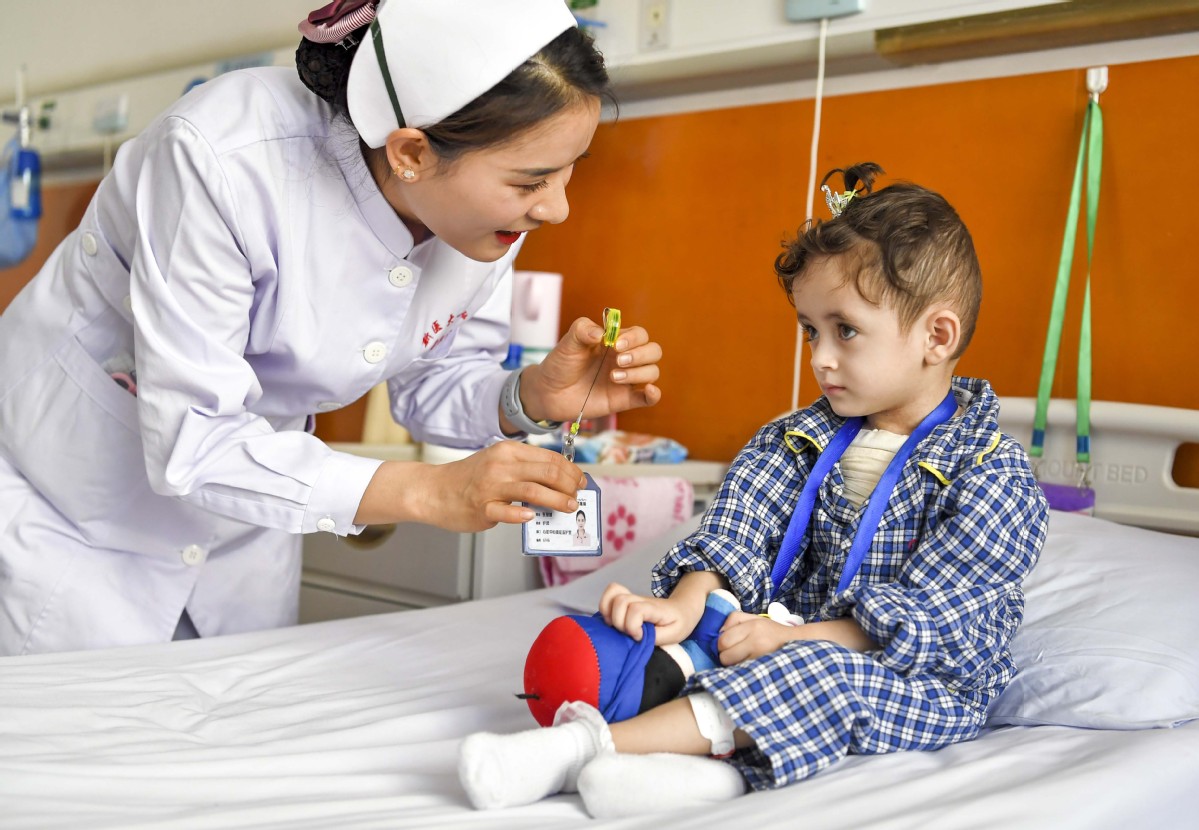Afghan children treated for heart disease
 0 Comment(s)
0 Comment(s) Print
Print E-mail China Daily, November 8, 2018
E-mail China Daily, November 8, 2018
A hundred children from Afghanistan with congenital heart defects have received medical treatment in the Xinjiang Uygur autonomous region in four batches since September last year as part of the Red Cross Society of China's foreign humanitarian mission.

On Wednesday, 18 young Afghans from the last group who had been hospitalized at the First Hospital of Xinjiang Medical University in the region's capital, Urumqi, since late October, were discharged and boarded a plane bound for Kabul, their country's capital.
"Aid from the Red Cross Society of China has helped a total of 100 Afghan children gradually recover and relieved them of medical burdens. This is the best gift," Faizekhuda Faizani, director of relationship management at the Afghan Red Crescent Society, said at a gathering held by the Chinese Red Cross in Urumqi on Tuesday, ahead of the children's departure.
Wang Rupeng, vice-president of the Chinese society, said the mission, funded by its Silk Road Fraternity Fund, aims at strengthening people-to-people ties between China and Afghanistan, a country involved in the Belt and Road Initiative.
"We will further mobilize our humanitarian resources to advance the development of humanitarian aid, fraternity and public health under the framework of the BRI," he said.
The mission, Wang said, began in June last year, when the Red Cross learned that inadequate medical infrastructure coupled with domestic unrest had put the safety and health of Afghan civilians, especially children, at risk.
"More than 7,000 Afghan children in need of treatment for congenital heart defects were registered with the Afghan Red Crescent Society," he said.
Two months later, in August, an aid team from the Chinese Red Cross was sent to Kabul to examine young patients. During the visit, it signed a collaboration memo with its Afghan counterpart, promising to treat 100 children. The first group of 21 patients was soon transferred to the hospital in Xinjiang.
Three groups arrived in Xinjiang in April, July and October. As of Wednesday, all but three Afghans in recovery had returned to their native country.
Ma Songfeng, who heads the pediatric surgery and pediatric cardiology departments at the hospital, said different languages and dietary habits posed challenges at the beginning.
"We were concerned about their recovery because they ate very little," he said. "So nutrition experts at the hospital designed a variety of kid's meals based on Afghan eating habits."
The children's appetites recovered thanks to the tailored meals.
Nazifullah Rahmani, an Afghan mother who lost her third daughter to heart disease in 2010, is grateful that her second daughter, who was diagnosed with a congenital heart defect in 2014, benefited from the medical project.
"After the surgery, I called my family in Afghanistan to say that the treatment went well, and they burst into tears of joy," she said. "We hope to reciprocate the Red Cross Society of China's kindness, because the project has given my child a second chance to live. I also hope the society will help more children in Afghanistan, where a great number still suffer from heart disease."
The Chinese Red Cross has provided humanitarian aid in more than 20 countries involved in the BRI since the Silk Road Fraternity Fund was set up in February last year.






Go to Forum >>0 Comment(s)